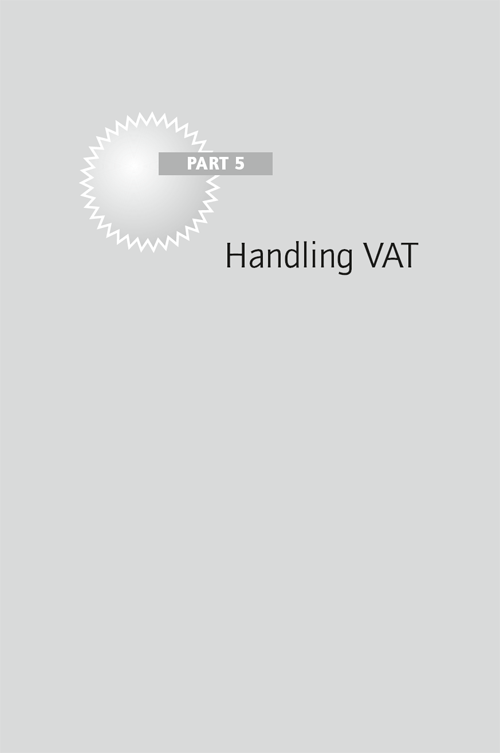Value Added Tax (VAT) is something that all but the smallest of businesses must be concerned with. However, it may not be necessary for every budget controller and forecaster to take account of it, especially in departmental budgets.
As a rule of thumb:
- if the forecast is at the highest level of the business, and if it includes a cash flow forecast that is intended to represent the reality of cash movements, then accounting for VAT is essential;
- if a cash flow forecast at any level in the business is intended to be a notional representation of cash movements only (see Chapter 9) then accounting for VAT is unnecessary.
VAT can only be dealt with if there is a cash flow forecast and a budget forecast. So if a budget model does not have a cash flow forecast, VAT can be ignored entirely.
Important: While the concept of VAT and the way in which it is handled in a cash flow forecast is simple and straightforward, the detailed rules applied by HM Revenue & Customs are many, and in some instances very complex. Interpretation and application of the rules is, therefore, best done with the help of a qualified professional.

